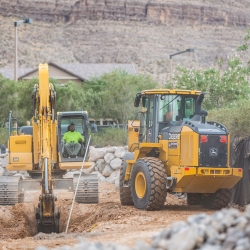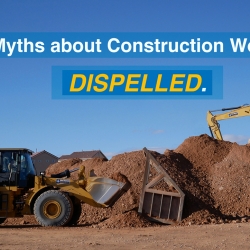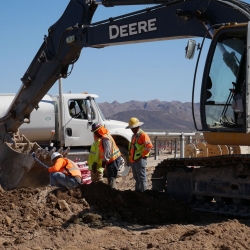News
Why Many Young People Don’t Want Careers in Construction (And What We Can Do About It)
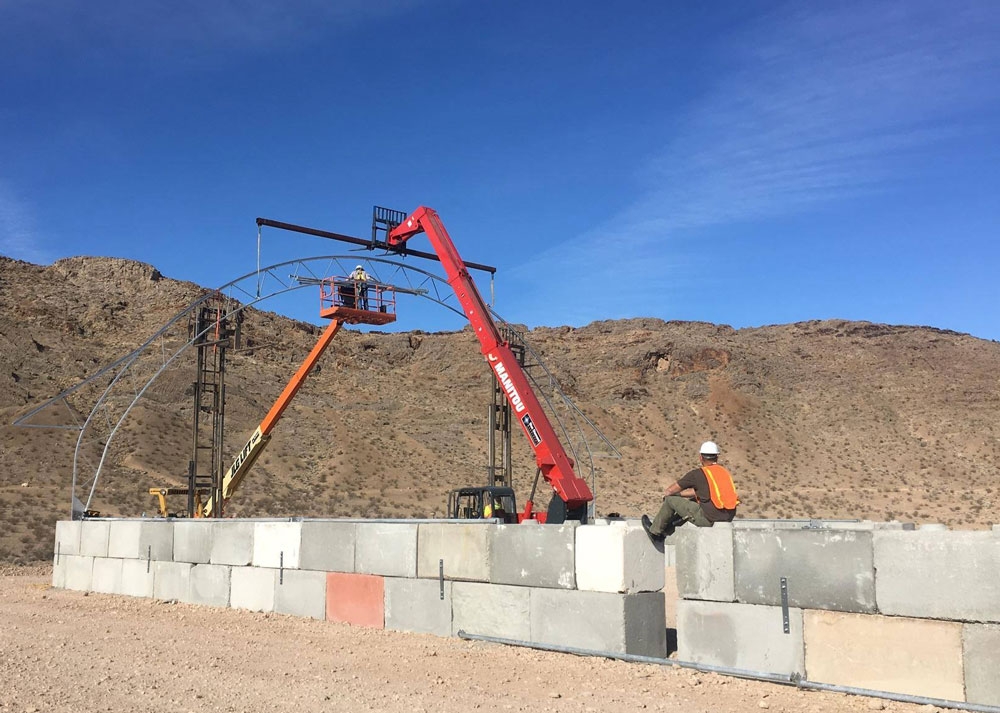
70 percent of construction companies are struggling to fill job openings, reports Autodesk and the Associated General Contractors of America. Young people, it would seem, are not pursuing careers in the construction industry at the same rate they did in previous generations, which has lead to a shortage of skilled laborers. And it's not just in the construction industry, either. As Baby Boomers continue to retire, the trades in general have struggled to find suitable replacements.
This has some industry leaders perplexed, as the construction industry seemingly has a lot to offer young people, including job security, high salaries and attractive benefit packages. So why have 18-to-35-year-olds largely turned their backs on the idea of becoming foreman, mechanics and forklift operators?
Below are a few popular theories.
Millennials don't realize construction pays well
Construction jobs often pay better than positions that require a Bachelor's Degree. According to the Department of Labor, for example, the average carpenter earns a salary of $90,000 a year.
While this may be common knowledge to those working in the field, it's not apparent to many young people. This is at least according to the results of a recent poll, which found that only 11 percent of people aged 18 to 24 believe that going to trade school can lead to a high-paying job.
There's a stigma attached to "manual labor jobs"
Millennials were raised hearing from parents and well-meaning educators that the key to success is to "follow your passion" and "love what you do and you'll never work a day in your life." While neither of those messages are necessarily wrong, their unintended consequence was a shift in values, says Construct-Ed.
Where previously, values such as "earning an honest living" and job satisfaction were considered adequate expectations of a profession, they have since been replaced with the ideals of finding a job that challenges the mind and excites the spirt.
This outlook has posed a perception problem for the construction industry. Because while construction can be mentally stimulating, it's also hard work. Pouring concrete in 100-degree weather isn't fun. And operating an excavator 12 hours a day isn't always exciting. But many a construction worker report their work to be full-filling. In fact, according to a survey of over 30,000 employees, construction workers are among the happiest.
Young people think college is the only option
Kids have been steered toward the college track since the 1980s, regardless of interest or aptitude. A child may be talented at building or may have a fascination with tinkering with car engines, but instead of educators and parents fostering those interests, those same children are encouraged to put down the legos and pick up the SAT prep book.
"Go to college or else you'll end up like that guy," kids are told. But as Construct-Ed points out, "that guy" could be making $80,000 a year doing what he loves (working outside) while the college grad is stuck at a desk earning far less.
Young people need to be taught that the university-to-white-collar-job career path isn't their only option—or even necessarily their best one.
What the construction industry can do about it:
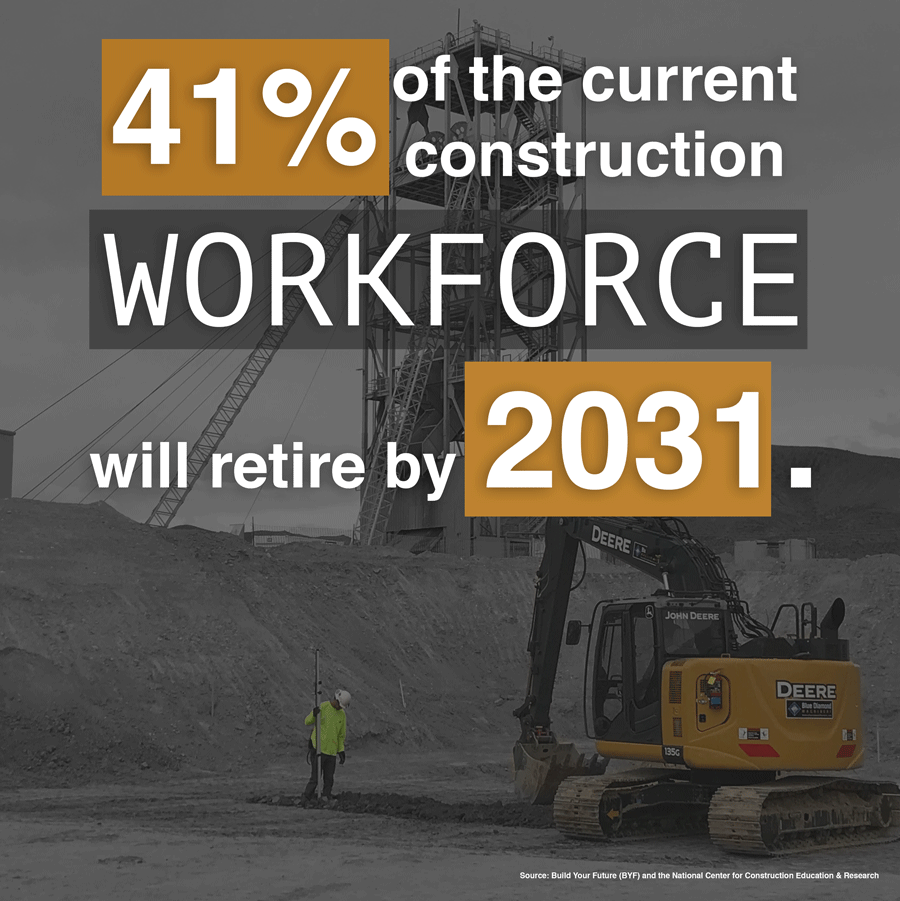
Image statistic source: Build Your Future (BYF) and the National Center for Construction Education & Research.
Like it or not, the fact remains that by 2020, millennials will make up 40% of the workforce. The construction industry will need to attract more millennial employees if they hope to survive. This may involve adopting a new approach.
Recognize that money isn't young people's only concern
It's been widely reported that Generation Y and Generation Z aren't just looking for a career, they're looking for a calling. They want to feel like the work they're doing aligns with their passions and goals. They also want to feel as though their values and their employers' values align.
While a decent salary is important, making a positive impact on the planet and community is just as important as any six-figure salary. Or as one Forbes.com writer put it, "Millennials don't want jobs. They want lives."
Is this view idealistic? Perhaps. Is it likely to go away any time soon? Probably not. As employers, we have to realize that upping salary ranges isn't the only answer. We may be offering some of the highest-paying jobs in the country, but that alone won't be enough to attract—and keep—the next generation of workers. The way we can usher in more millennials into our field is by building a strong company culture and modeling our company values off the values that younger generations hold dear.
Work to educate future candidates and bust the myths
Construct-Ed suggests highlighting success stories and emphasizing the large amount of entrepreneurship opportunities in the trades. A lot of media attention is given to tech entrepreneurs, for example, which has lead many a high school and college student to believe they have to invent something or launch a tech startup to become a successful business owner. The thought of starting a commercial cleaning business or home security company may never cross their minds, which is a shame, because "blue collar businesses" are frequently some of the most successful.
Other misconceptions that millennials may have is that they'll "hate working construction" and that "construction is for people who can't get into college." The reality is that there's more variety to construction work than many may assume and that a career in construction requires both intelligence and a great deal of skill.
As representatives of the industry, it is our responsibility to educate young people on the fact-based pros and cons of construction work. And that should start with the young people themselves. Together, Gen Y and Z can "make construction cool," just as they've done with other hands-on professions, like craft brewing and furniture-making.
Luckily, there's reason to have hope. If articles like this are any indication, change is already on the horizon.
About Blue Diamond Machinery: Blue Diamond Machinery is an independently-owned construction equipment company in Las Vegas that rents and sells heavy equipment. Roughly a quarter of all the employees at Blue Diamond Machinery are Generation Y or Z. To learn more, visit www.bluediamondmachinery.com.

FREE Guide to Buying and Selling Heavy Equipment
Enter your details to receive our complimentary ebook
